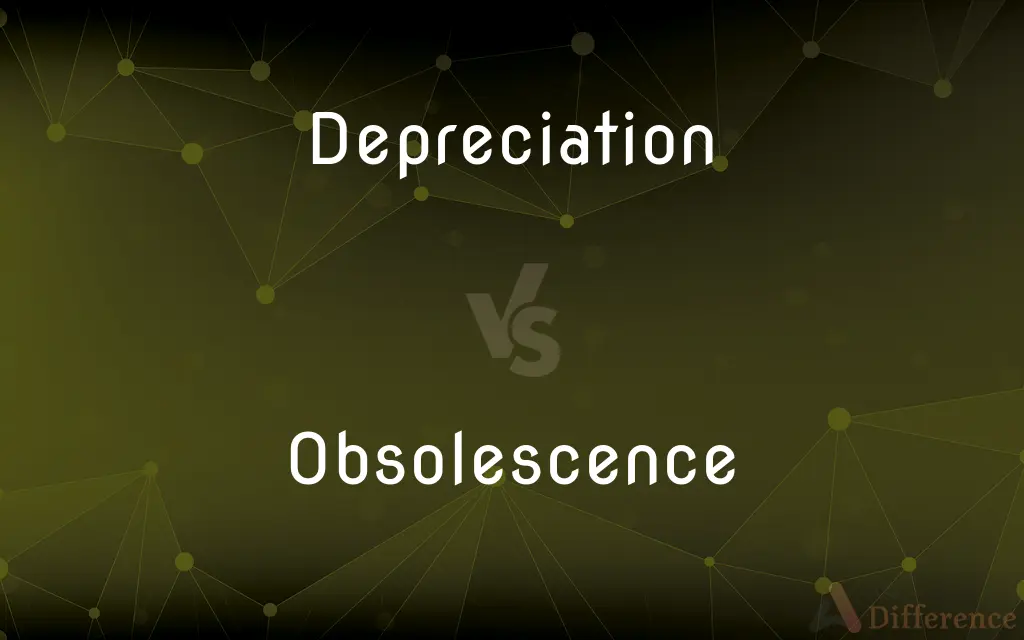Depreciation vs. Obsolescence — What's the Difference?

Difference Between Depreciation and Obsolescence
ADVERTISEMENT
Compare with Definitions
Depreciation
In accountancy, depreciation refers to two aspects of the same concept: first, the actual decrease of fair value of an asset, such as the decrease in value of factory equipment each year as it is used and wear, and second, the allocation in accounting statements of the original cost of the assets to periods in which the assets are used (depreciation with the matching principle).Depreciation is thus the decrease in the value of assets and the method used to reallocate, or "write down" the cost of a tangible asset (such as equipment) over its useful life span. Businesses depreciate long-term assets for both accounting and tax purposes.
Obsolescence
Obsolescence is the state of being which occurs when an object, service, or practice is no longer maintained, required, or degraded even though it may still be in good working order.The international standard IEC 62402:2019 Obsolescence Management defines obsolescence as the "transition from available to unavailable from the manufacturer in accordance with the original specification".Obsolescence frequently occurs because a replacement has become available that has, in sum, more advantages compared to the disadvantages incurred by maintaining or repairing the original. Obsolete also refers to something that is already disused or discarded, or antiquated.
Depreciation
A decrease or loss in value, as because of age, wear, or market conditions.
Obsolescence
Being in the process of passing out of use or usefulness; becoming obsolete.
Depreciation
(Accounting) An allowance made for a loss in value of property.
ADVERTISEMENT
Obsolescence
(Biology) Becoming reduced during the course of evolution; vestigial or nearly vestigial. Used of an organ or other part of an organism.
Depreciation
Reduction in the purchasing value of money.
Obsolescence
(uncountable) The state of being obsolete—no longer in use; gone into disuse; disused or neglected.
Depreciation
An instance of disparaging or belittlement.
Obsolescence
(countable) The process of becoming obsolete, outmoded or out of date.
Depreciation
The state of being depreciated; disparagement.
Obsolescence
The state of becoming obsolete.
Depreciation
The decline in value of assets.
Obsolescence
The process of becoming obsolete; falling into disuse or becoming out of date;
A policy of planned obsolescence
Depreciation
(accounting) The measurement of the decline in value of assets. Not to be confused with impairment, which is the measurement of the unplanned, extraordinary decline in value of assets.
Depreciation
The act of lessening, or seeking to lessen, price, value, or reputation.
Depreciation
The falling of value; reduction of worth.
Depreciation
The state of being depreciated.
Depreciation
A decrease in price or value;
Depreciation of the dollar against the yen
Depreciation
Decrease in value of an asset due to obsolescence or use
Depreciation
A communication that belittles somebody or something
Share Your Discovery

Previous Comparison
Homonym vs. Polysemy
Next Comparison
Airline vs. Airliner














































